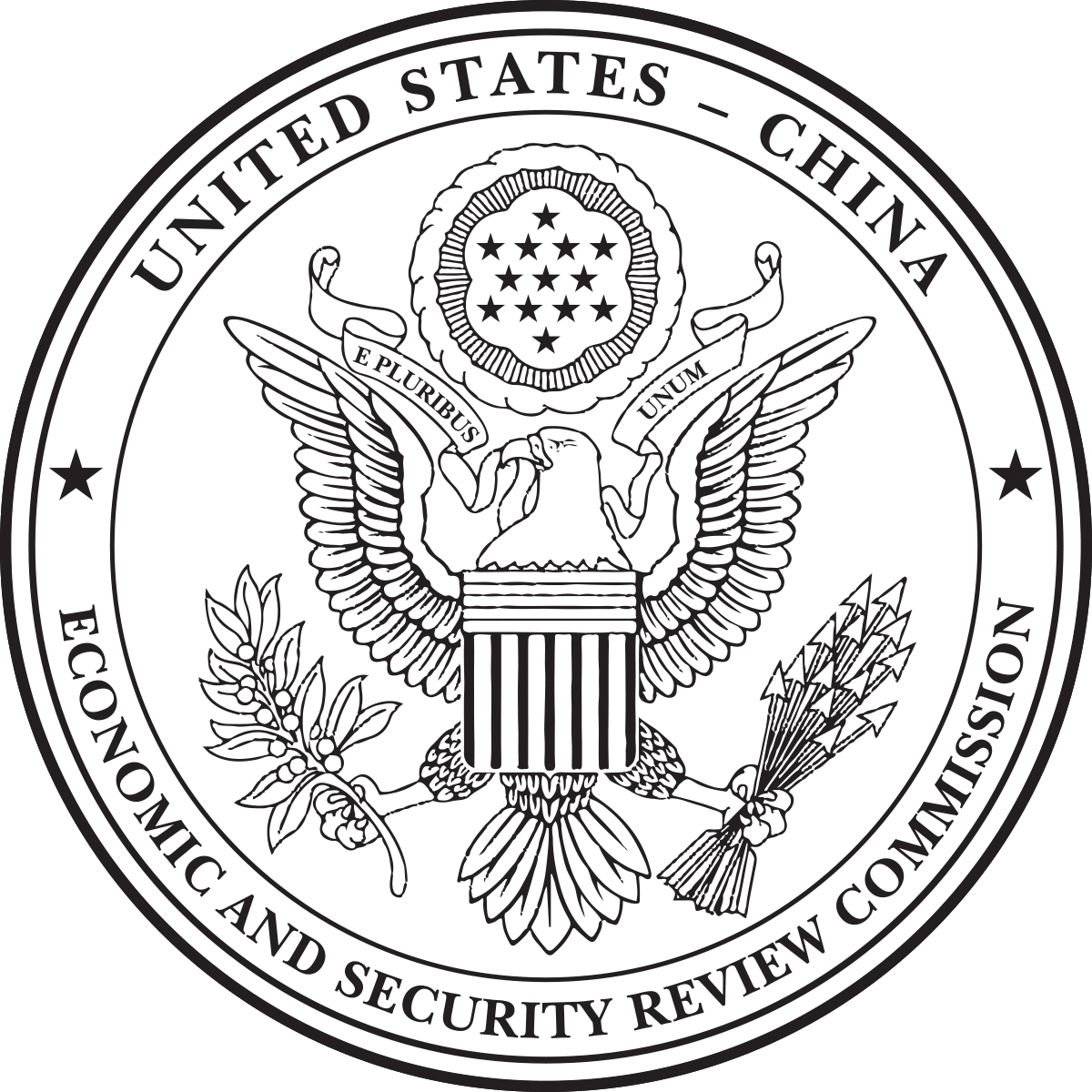×
Filter Results
Filter Results
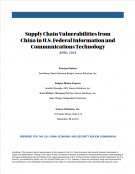
Contracted Research
The U.S.-China Economic and Security Review Commission released a report entitled Supply Chain Vulnerabilities from China in U.S. Federal Information and Communications Technology, prepared for the Commission by Interos Solutions, Inc. The report examines vulnerabilities in the U.S. government information and communications technology (ICT) supply chains posed by China, and makes recommendations for supply chain risk management.
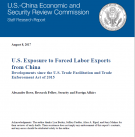
Staff Paper
China maintains a network of prison labor facilities that use forced labor to produce goods intended for export—a violation of U.S.-China trade agreements and U.S. law. The United States continues to face difficulty in preventing these products from entering its borders, but the Trade Facilitation and Trade Enforcement Act (TFTEA) of 2015 has strengthened its ability to do so by closing a major legal loophole. Chinese authorities remain uncooperative with their U.S. counterparts; they routinely deny that forced labor occurs, and they have not allowed U.S. officials to visit suspected sites in years. Due to insufficient oversight, the supply chains of many U.S. companies remain vulnerable to forced labor-derived products.
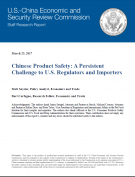
Staff Paper
Chinese imports account for a disproportionately high number of product safety recalls in the United States, and China’s position as the largest supplier of U.S. consumer imports challenges U.S. safety regulatory agencies who must apply finite resources to screen out risky products. This staff paper explores unique product safety problems posed by Chinese imports, including legal difficulties associated with holding China-based firms accountable for unsafe products, gaps in China’s safety regulatory structure, and difficulty in identifying Chinese products that have been shipped through third party countries. The report also summarizes U.S. import safety procedures followed by the U.S. Consumer Product Safety Commission and U.S. Food and Drug Administration and the resources available to these agencies to detect unsafe imports.
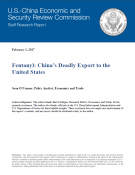
Staff Paper
Mass quantities of fentanyl, a low-cost and highly potent synthetic drug, are being produced in China and brought illegally to the United States, contributing to a growing U.S. opioid crisis. The rise of fentanyl in the United States can be traced back to China’s large chemical and pharmaceutical industries, which manufacture vast quantities of the drug and its analogues to export to the western hemisphere with little regulatory oversight. This report examines how China’s illicit chemical production and inefficient U.S. and international counternarcotic efforts have contributed to dramatic increases in fentanyl-related deaths in the United States.
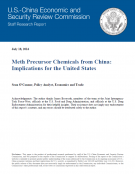
Staff Paper
Over the last 15 years, Mexican drug organizations have replaced domestic producers as the main manufacturers and distributors of meth in the United States. While Mexican cartels produce the majority (around 90 percent) of meth used in the United States, around 80 percent of precursor chemicals used in Mexican meth come from China. Precursor chemicals are increasingly being shipped from China to Mexico and Central America, where they are manufactured into meth, transported across the southern border of the United States, and brought into southwestern states—Texas, Arizona, and California—before being shipped across the country. Despite international counternarcotic efforts, meth precursor manufacturers in China continue to thrive because the country’s vast chemical and pharmaceutical industries are weakly regulated and poorly monitored. This report examines the extent of China’s illicit chemical production and the effectiveness of U.S. and international efforts to reduce precursor chemical flows.
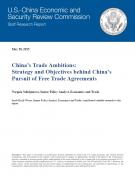
Staff Paper
This paper analyzes China’s preferential trade strategy and rationale. It finds that China has signed trade agreements primarily with countries that are neither significant in the global economy nor vital to China’s export sector. Indeed, several partners enjoy bilateral trade surpluses with China, and have comparative advantages in industries that China may want to protect from outside competition. The way in which China negotiates trade deals is also confounding. Unlike the United States, China appears to lack a modus operandi, so that the scope, strength, and details of its agreements vary widely. Some appear exceedingly generous to the trade partner, while others aggressively promote and protect domestic industries. With respect to services, investment, and other advanced provisions, China tends to fall well short of U.S. standards; yet it also demonstrates greater ambition and flexibility than developing country peers like India and Brazil.
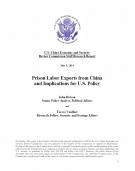
Staff Paper
Since the Commission’s examination in 2008 of prison labor issues in the People’s Republic of China (PRC), there has been little substantive reduction in the scale and scope of China’s broad network of prison labor facilities. These facilities, led by local officials, continue to produce goods intended for export on a potentially large scale, in violation of U.S.-China agreements on the exports of prison labor goods to the United States. Although U.S. representatives in Beijing have continued to engage with their Chinese counterparts regarding suspected prison manufacturing facilities, the pattern of long delays and minimal cooperation by officials in the PRC Ministry of Prisons persists. Further, it is unclear whether the recent abolition of “reeducation through labor” (RTL) and reported release of up to tens of thousands of prisoners will have a significant impact on the prison labor system and export of prison labor products.
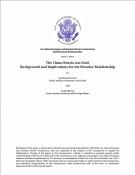
Staff Paper
On May 21, China signed a 30-year, $400 billion gas supply deal with Russia. The agreement concluded a decade of protracted negotiations, and coincided with an escalation of the Ukraine crisis in Europe. This paper examines the conditions, motives, and implications of the deal. It begins by looking at China’s energy needs and gas import strategy, as well as Russia’s Asia pivot. It then analyzes the key points of contention – the price, shipping route, and payment and investment conditions – and whether or not these were resolved in China’s favor. Section 3 places the deal in the context of Sino-Russian relations, in terms of geopolitics, economic ties, and a maturing energy partnership. The paper closes with implications for the United States, Europe, and Japan.

Staff Paper
Written by USCC Research Fellow (2011): Joseph Casey

